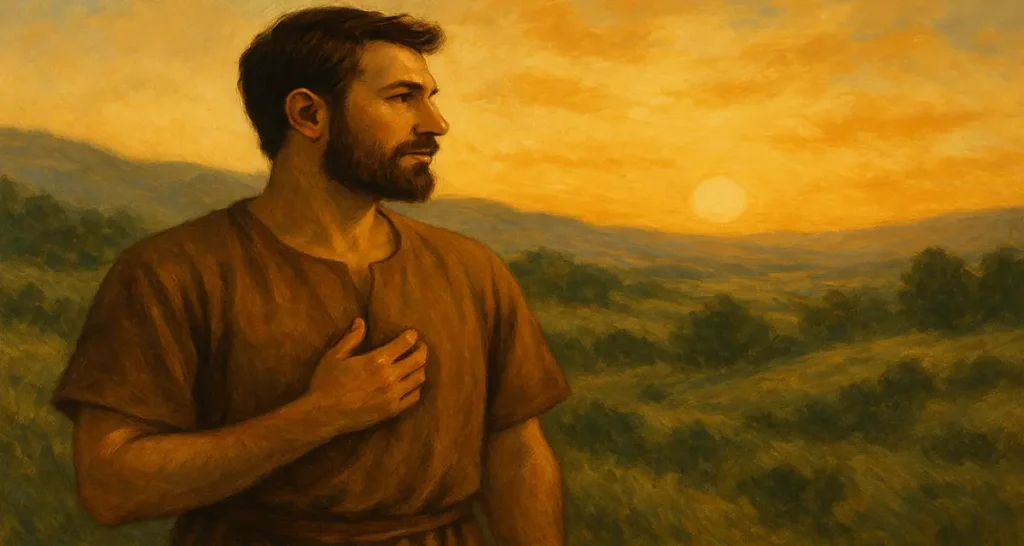This is a deeply important and honest question. You’re absolutely right to bring Paul’s statement back into it—“Everything written was for our learning”—because it reminds us that even the unraveling has a purpose in the story God is telling for our sake.
Let’s wrestle with it honestly:
If God knew the fall would happen, and if He called creation “very good,”
why didn’t He protect or prevent the collapse of it all?
Especially when it spiraled into a world of death, suffering, and cosmic disorder?
That question echoes in many hearts—it’s not just theological; it’s personal.
So here’s a layered answer, drawn from Scripture’s overarching themes and the way Genesis is written for our instruction:
1. Because Love Without Freedom Is Not Love
God created humans in His image—that includes reason, moral responsibility, and above all, freedom. In Genesis 2:16–17, He gives Adam and Eve a real choice: the tree of life or the tree of knowledge of good and evil.
That tree isn’t a trap—it’s a test of trust. For love to be love, trust must be possible. And for trust to be real, betrayal must be a risk.
To remove that risk would have meant removing human dignity.
God didn’t want robots who obey; He wanted image-bearers who love.
And so, for our learning, Genesis teaches this: Freedom misused fractures goodness—but freedom was essential for love to be possible in the first place.
2. Because the “Very Good” Creation Was Never the Final Goal
Surprisingly, Genesis 1–2 is not the end—it’s the beginning.
It’s good, even very good—but it’s also uncompleted. There’s no temple yet, no Sabbath worship structure, no cross, no resurrection. It’s good, but not glorified.
The Bible tells a story not of static perfection, but of a world made to grow into something more through partnership with God. That’s why Adam is told to “work and guard” the garden (Gen. 2:15)—language later used for priestly service in the tabernacle.
In that sense, God didn’t fail to protect Eden—He entrusted it to humans. They were meant to protect it. Their failure teaches us this: when we fail to guard goodness, disorder spreads. This is part of our learning.
3. Because God’s Glory Shines Brighter Through Redemption
Romans 11:32 says:
“For God has consigned all to disobedience, that he may have mercy on all.”
That doesn’t mean God caused the fall—but that He allowed it in order to reveal something greater: His mercy, His justice, His faithfulness, His self-giving love.
If there had never been a fall, we might know God as Creator—but would we know Him as Redeemer? As the One who suffers with us? As the One who gives His Son?
In the Cross, God doesn’t just fix the unraveling—He enters into it.
He bears it. Redeems it. Then reweaves it into a greater glory.
Scripture doesn’t glorify sin, but it shows how God brings grace out of it. This, too, is for our learning: even what we break, God can remake.
4. Because the Fall Shows the Cost of Separation—and the Hope of Return
Genesis 3 doesn’t only explain what happened—it helps us understand what continues to happen.
We live in a world still shaped by Genesis 3:
- Distrust in God
- Shame and blame
- Disordered desires
- Fractured relationships
But we also live in a world where Genesis 3 is not the last word. God pursues. God clothes. God promises a coming Savior (Gen. 3:15). The fall becomes the arena of grace.
God didn’t prevent the fall because He planned a greater rising—a redemption that doesn’t just restore Eden, but surpasses it. We don’t just go back to a garden—we are led forward to a city with no more death or curse (Revelation 22).
Final Reflection
God didn’t prevent the unraveling—
because He intended to reveal a deeper beauty through the reweaving.
Not because He is careless. But because He is infinitely wise, patient, and good.
So yes—Genesis is for our learning. It teaches us:
- What was lost
- Why it matters
- What it costs
- And how God never stops pursuing restoration
The unraveling grieves Him (Genesis 6:6), but it’s not beyond Him. And He writes Himself into the story to make it whole again. That’s what we’re meant to behold.
And perhaps that’s why Paul can say,
“Where sin increased, grace abounded all the more” (Romans 5:20).
Not because the fall was good—but because grace is greater.


